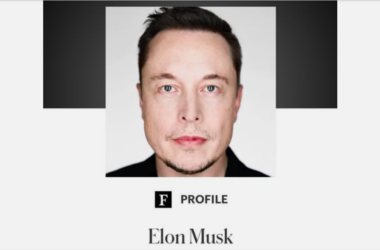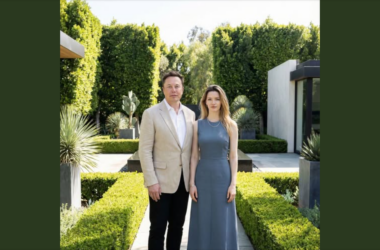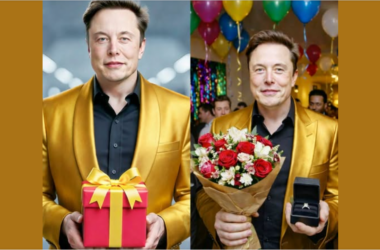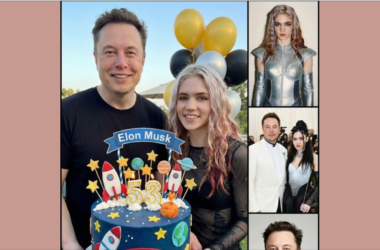
In a world often defined by technological breakthroughs and rapid innovation, it’s rare for a single human moment to capture the attention—and hearts—of millions. But that’s exactly what happened this week, when a paralyzed woman, silenced for two decades by her condition, wrote her first sentence using nothing but her thoughts—thanks to technology pioneered by Elon Musk’s company, Neuralink. The six words she chose broke the internet, moved millions to tears, and reminded us all of the profound power of communication, hope, and human connection.
A Life Lived in Silence
For over 20 years, Maria (her family asked for her last name to remain private) lived trapped inside her own body. A tragic car accident in her early twenties left her completely paralyzed and unable to speak—a condition known as locked-in syndrome. Though her mind was fully conscious, she had no way to communicate with the outside world. For her parents, friends, and caregivers, the hardest part was not knowing what she was thinking or feeling. For Maria, it was the unbearable loneliness of silence.
Her family tried everything: eye-tracking devices, letter boards, even experimental therapies. Nothing worked. As the years passed, hope faded. But then, in 2024, her doctors told her family about a new clinical trial—one that sounded like science fiction.
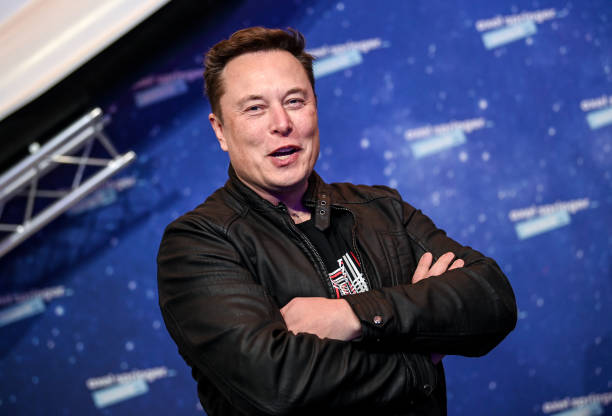
Enter Neuralink: Turning Thoughts Into Words
Neuralink, the brain-computer interface company founded by Elon Musk, had been making headlines for years with its ambitious goal: to create devices that allow the human brain to communicate directly with computers. The technology promised to help people with paralysis control devices, move robotic limbs, and—most importantly—communicate.
Maria’s family leapt at the chance. After months of screening and preparation, she became one of the first patients to receive a Neuralink implant. The device, smaller than a coin, was delicately placed in her skull, where tiny electrodes connected with her brain’s motor cortex.
The challenge was immense. Could a machine really “read” her thoughts and translate them into words on a screen? Even the scientists weren’t sure. But for Maria and her family, it was a chance worth taking.
The First Test: A World Holds Its Breath
The first weeks after surgery were filled with training and calibration. Neuralink’s team worked tirelessly, teaching the device to recognize the unique patterns of Maria’s brain activity as she imagined moving her hand or focusing on letters. Progress was slow, but steady.
Then, one afternoon in June 2025, the team decided to try something extraordinary. They asked Maria to think about writing her name. Her family gathered around, holding their breath as the computer screen flickered.
Letter by letter, her name appeared.
Her mother burst into tears. For the first time in 20 years, Maria had spoken—if not with her voice, then with her mind.
But what happened next stunned everyone.
The Sentence That Stopped the World
After her name, the team asked if she wanted to write something else. Maria’s eyes filled with emotion. Slowly, painstakingly, she began to concentrate. The cursor moved, and the letters appeared, one after another.
When the sentence was complete, there was silence in the room. Then, as the words sank in, tears began to flow—not just from her family, but from the entire medical team.
The six words she wrote were:
“Thank you for not giving up.”
The message was simple. But its meaning was profound—a lifetime of gratitude, hope, and love distilled into six words. The moment was captured on video and, with her family’s blessing, shared online.
Within hours, the clip went viral. News outlets around the world picked up the story. Social media exploded with reactions—tears, prayers, and messages of support from every corner of the globe.
Elon Musk Responds
Elon Musk, known for his visionary ambitions and sometimes controversial statements, responded to the viral moment with uncharacteristic humility. “This is why we do what we do,” he tweeted. “Technology should serve humanity, and today, humanity spoke back.”
He later released a statement: “It’s easy to get lost in the science and engineering, but stories like Maria’s remind us of the real reason we push boundaries. Every person deserves a voice. I’m grateful to the Neuralink team, Maria, and her family for showing the world what’s possible.”
A Ripple Effect of Hope
The impact of Maria’s sentence has rippled far beyond her hospital room. Families of other patients with locked-in syndrome have reached out, hopeful that this technology might one day reunite them with their loved ones’ voices. Advocacy groups for the disabled have hailed the breakthrough as the dawn of a new era.
Medical experts caution that the technology is still in its infancy—Neuralink’s device is experimental, and not every patient will see the same results. But for the first time, there is real hope that the silent can speak, the isolated can connect, and the voiceless can be heard.
The Power of Six Words
Why did Maria’s sentence touch so many? Perhaps because it captured the universal longing to be seen and heard. Her words were not just a thank you to her family—they were a thank you to everyone who refuses to give up on hope, on love, or on the possibility of miracles.
In a world often divided by technology, Maria’s story reminds us that innovation is at its best when it brings us together. Her six words are a testament to the resilience of the human spirit, the power of family, and the promise of a future where no one has to live in silence.
Looking Ahead
As Neuralink and similar technologies continue to develop, the possibilities seem endless. For Maria, the journey is just beginning. She now spends her days “talking” with her family, sharing jokes, stories, and dreams for the future. Her first sentence may have made the world cry, but her next sentences are sure to make it smile.
And for the millions who watched her message, one thing is certain: they will never forget the day a woman who lived in silence for 20 years finally found her voice—and used it to say, “Thank you for not giving up.”
